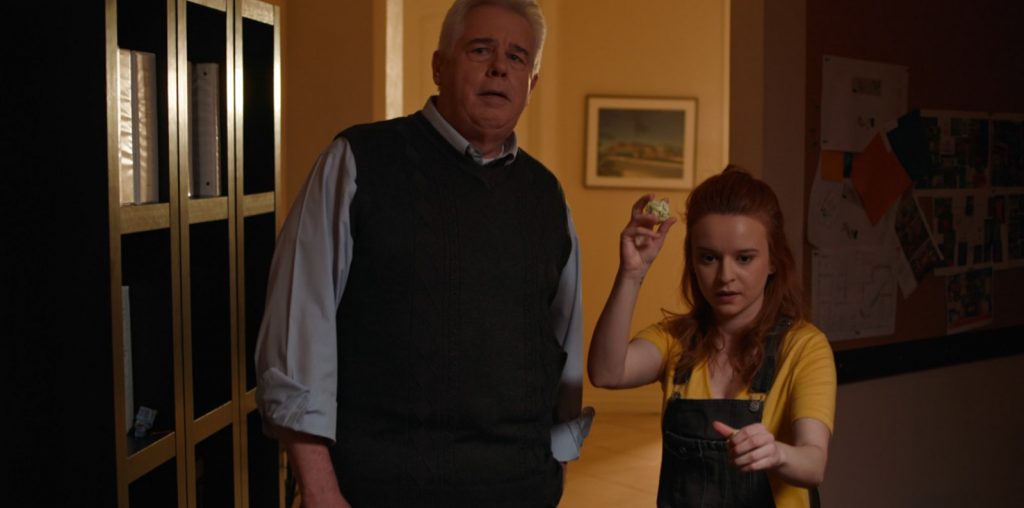
I did the research before watching the movie. Should I have looked? Do you ever read about a movie before viewing or do you go in cold? I do both for different films. I don’t avoid spoilers in films/TV. I’d rather not be surprised.
The conditions leading up to the Armenian genocide evolved through complex layers of events with multiple drivers over time but the short version is that the Ottoman Turks worried that the Christian Armenians (who were a reviled and oppressed underclass in the Ottoman culture) would side with the Russians in the coming war (WWI) and decided they’d mitigate that risk by systematically deporting, conscripting, imprisoning, and killing most of them.
According to wikipedia: “Turkey, the successor state of the Ottoman Empire, denies the word genocide as an accurate term for the mass killings of Armenians that began under Ottoman rule in 1915. It has in recent years been faced with repeated calls to recognize them as genocide. To date, 29 countries have officially recognized the mass killings as genocide, as have most genocide scholars and historians”
I’m puzzled as to why the word is what hangs people up. Nobody argues with the body count. When you kill 1.5 million people, who gives a s**t what it’s called? Let’s just not do that again. Unfortunately, words do matter. This is particularly noteworthy now in the U.S. where we are saddled with a government rife with stupid semantics and “alternative facts.”

“The eponymous Ottoman officer Ismael (Huisman) is a romantic wet dream…”
Then I watched the movie. I should have gone in cold and then looked it up but I’m rarely that patient. Aspects of it would have annoyed me even if I hadn’t done the research. My resulting bias shows here: It’s disturbing that the film strips down a complicated moment in history to brightly colored basic ideas and impulses. Heroism, altruism, and passion are presented in the simplest terms and most convenient definitions without the messy contradictions (or the full accounting) of historical reality.
Taken as just a film it’s not terrible. Dutch actor Michiel Huisman is great in the HBO show Treme and commendable here as the Ottoman officer. Josh Hartnett is sturdy and delivers a reliable performance. Sir Ben Kingsley is beyond review at this point. His very presence brings the room up a notch. Maybe less so these days? It’s been a long time since Gandhi. He is still a fine actor and right at home as the tormented ether-addicted doctor running the hospital in the dusty wartime hellscape.


And The Promise is propaganda to prove it was genocide, financed exclusively by a multi billionaire Armenian American that gladly lost 100 million dollars to convince those about what they already know I’ve watched more than a fair share of movies about genocide and just because Turkey won’t bone up to the fact won’t make it go away. It’ll take more than a hyped movie or two to convince critical thinkers to fall sway either way on issues atrocious or otherwise
“opening scene of the movie ,where an Afro American is rejected to a hospital, thats you, and your article is all about, you hateful ignorant”
Aaron, there’s one issue with the scene: If it was indeed set in Pennsylvania, this would not have likely happened. Racial discrimination against blacks was of a different character in the north versus the south, where it was institutionalized and more rigid. Northern hospitals would have accepted blacks. Most northern cities officially accepted blacks into all schools (Cleveland might have been an exception). Blacks weren’t allowed into some social clubs, got more police attention, and were seen as lower than whites, but not to the degree they would have been kept out of a hospital.
Southern hospitals indeed discriminated by race in that way, but Lillie would have known that upon arrival had she agreed to work in the South (Also I imagine she, as an educated woman, would have known this and refused to come to the South).
Very good movie and good to get the more accurate version of events instead of them demonising the Turks , the Turks were known for their good manner even during the Gallipoli campaign sharing their food and tobacco with the enemy. In those times if you lived under the Ottoman Empire and were part of the regime trying to destabilise then you get what you deserve ! It’s called treason in the west and in every western nation you would be killed for it. It’s a well known fact the Armenians did actually have groups dedicated to killing and invading small Turkish rural villages so yes everything seems pretty spot on in this film thanks
The movie evokes reality and I was satisfied with the story. Thanks Ruben.
who do you think financing your article? Have you ever talked to 100 year old Armenian who lived in east of Turkey all his life and proudly shared what the life was all about in those times, how things were so beautiful, and peaceful..till the west took it all, like they doing the same…opening scene of the movie ,where an Afro American is rejected to a hospital, thats you, and your article is all about, you hateful ignorant
you proudly call ‘ genocide’, leave you to your ignorance
Fell in love with Michiel Huisman as Ismail. He is one gorgeous wet dream for sure.
Best movie ever!
Denial comes in many forms. Decades ago it was crude dismissal of the Armenian genocide by Turks that was essentially based on the notion of : “Armenians? what Armenians there were no Armenians only Turks lived in Turkey” in the same manner as Kurds were in reality “Mountain Turks”. Also, Armenian Christian churches and cathedrals were built by “Christian ancestors of Turks”.
Later, realizing the untenability of simplistic official lies Turkish authorities adopted a more subtle, more sophisticated approach. The new line was “bad things happen in wars, both sides suffered equally”. It is this latest approach that permits the president of Turkey to even offer his “condolences” for all those who died…you know, during the “civil war”.
Today, we witness yet another, prettier approach of denial through “The Ottoman Lieutenant”, a film financed and produced by government-connected Turkish sources who, we find out from the directing/editing team, even had a major say in the final editing, to the dismay of the director Joseph Ruben.